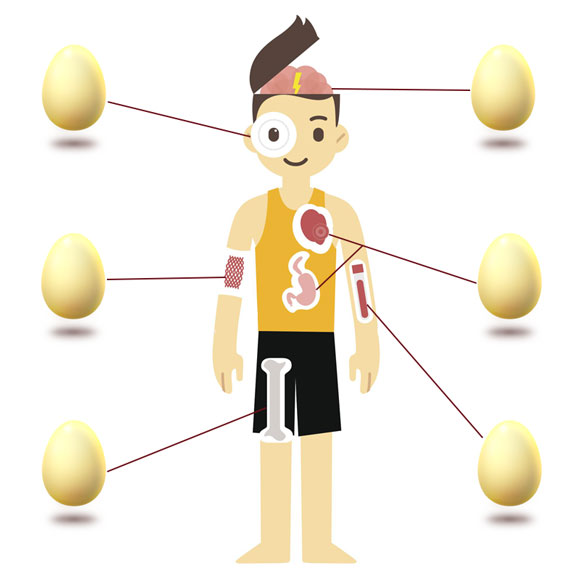
All About Egg Quality
Modern Poultry Farm have launched our brand *EGGROVILA*
Since 1983, we are producing the eggs with a mission to provide quality products to our customers.
Egg Contains Nutrients That Are Important For Health


The Structure Of Egg
An egg from a hen consists of approximately 2/3 egg white and 1/3 egg yolk
Nutritive value of eggs
Egg is a wholesome, nutritious food with high nutrient density because vitamins, essential amino acids and minerals Selenium, Choline and zinc etc. alongwith various other important ingredients so crucial for growth and good health.

The Egg White
The egg white represents approx. 60 % of the weight of the egg and consists of 88 % water and 12 % dry matter, primarily protein. The white is divided into three parts: an inner and an outer liquid layer, and in between those a liquid layer with a thicker consistency. The white prevents external bacteria from penetrating the yolk.
Egg FAQ’s
Interested in egg nutritional information? Below are some frequently asked questions regarding eggs and egg nutritional benefits.
1Are eggs good for you?
Yes! Eggs are a nutrient-dense food (aka eggs provide a nutrient bang for your calorie buck) according to the 2015-2020 Dietary Guidelines for Americans (DGAs).
2Does nutrient content vary depending on egg color or how the hens are raised?
The nutrient content of eggs is similar regardless of color (white or brown), grade (AA, A, or B), or how they are raised (organic, free-range, and conventional).
3Does nutrient content vary depending on egg color or how the hens are raised?
The nutrient content of eggs is similar regardless of color (white or brown), grade (AA, A, or B), or how they are raised (organic, free-range, and conventional).

